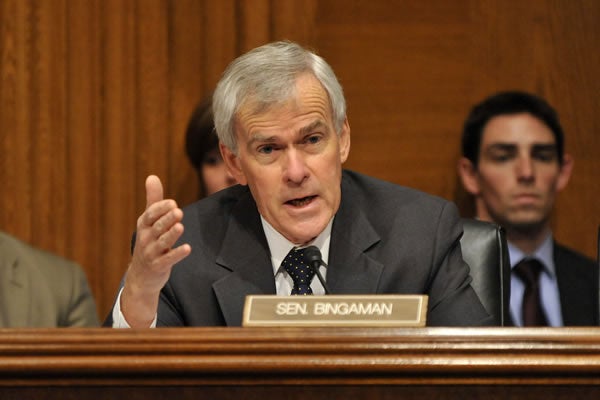In its pitch for a federal clean energy standard (CES), The Washington Post’s editorial board asks, “Will America do anything significant to slow climate change?” Assuming America actually needs to do something to slow climate change, even if the Post’s editorial board got its wish for a CES, America still wouldn’t be doing anything to slow climate change.
Senator Jeff Bingaman’s (D–NM) Clean Energy Standard Act of 2012 would require at least 24 percent of U.S. electricity generation to come from politically defined “clean energy” sources by 2015. The mandate increases dramatically, rising to 84 percent by 2035. New natural gas plants, as well as already-built hydroelectric and nuclear plants, would receive partial credit to help meet the standard.
But a clean energy standard wouldn’t drastically reduce emissions, nor would it significantly impact climate change. The Energy Information Administration estimated that mandating that 25 percent of energy comes from renewable energy would reduce emissions by only 4.9 percent by 2030.
The cap-and-trade target was to reduce carbon 80 percent below 2005 levels of emissions by 2050. To put that number in perspective, climatologist Paul C. Knappenberger says that an 80 percent reduction would moderate temperatures by only hundredths of a degree in 2050—and no more than two-tenths of a degree by the end of the century.
Senator Bingaman’s proposal is nothing more than another disguised energy tax. In fact, the Post editorial board’s preferred approach to mitigating climate change is either a cap-and-trade system (that would’ve driven electricity prices up 90 percent by the year 2035) or a carbon tax. Since 85 percent of America’s energy comes from carbon-emitting fossil fuels, forcing a shift away from those energy sources is going to drive up costs. And since producers use energy to make just about everything, this tax hits consumers again and again.
If the opposite were true, and a shift to politically preferred energy sources would save consumers money, why would we need a law mandating their use? A CES also restricts consumer choice by forcing ratepayers to buy one source of energy over another. If electricity consumers want to purchase more expensive renewable energy, they can and should have the ability to do so. But this is not a choice to be made by the government.
Remember, a clean energy standard is not about reducing black carbon, sulfur dioxide, or any of the other regulated pollutants that we know have adverse health and environmental effects (and for which there are strong regulations on the books). It is about reducing carbon dioxide—an odorless, non-toxic gas. As my colleague David Kreutzer says, it is “Orwellian doublethink to label CO2 ‘dirty.’”
A clean energy standard: Significant costs for consumers? Check. Significant government meddling that restricts consumer choice? Check. Significant changes to global temperatures? Not a chance.






























